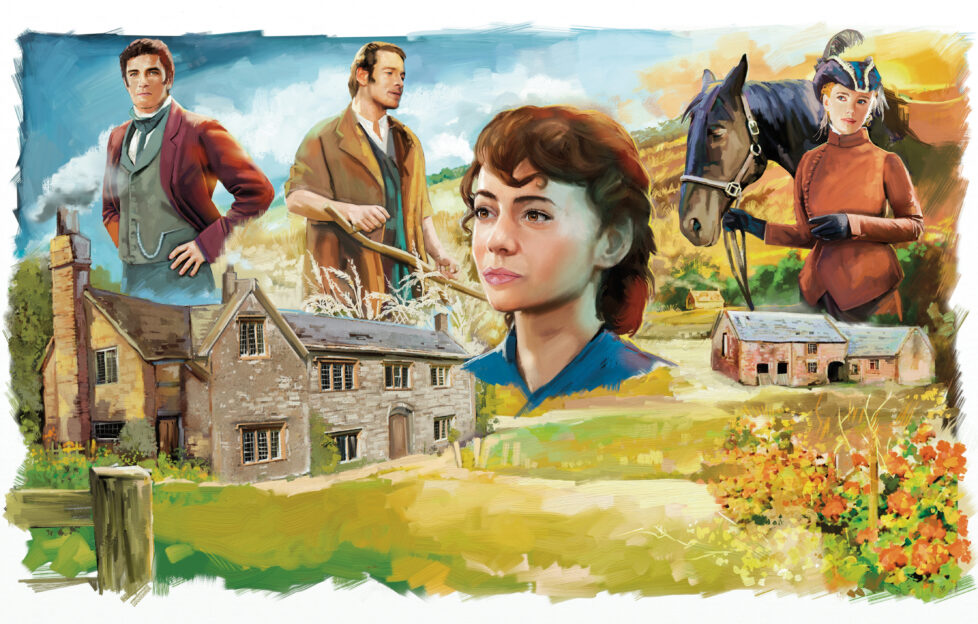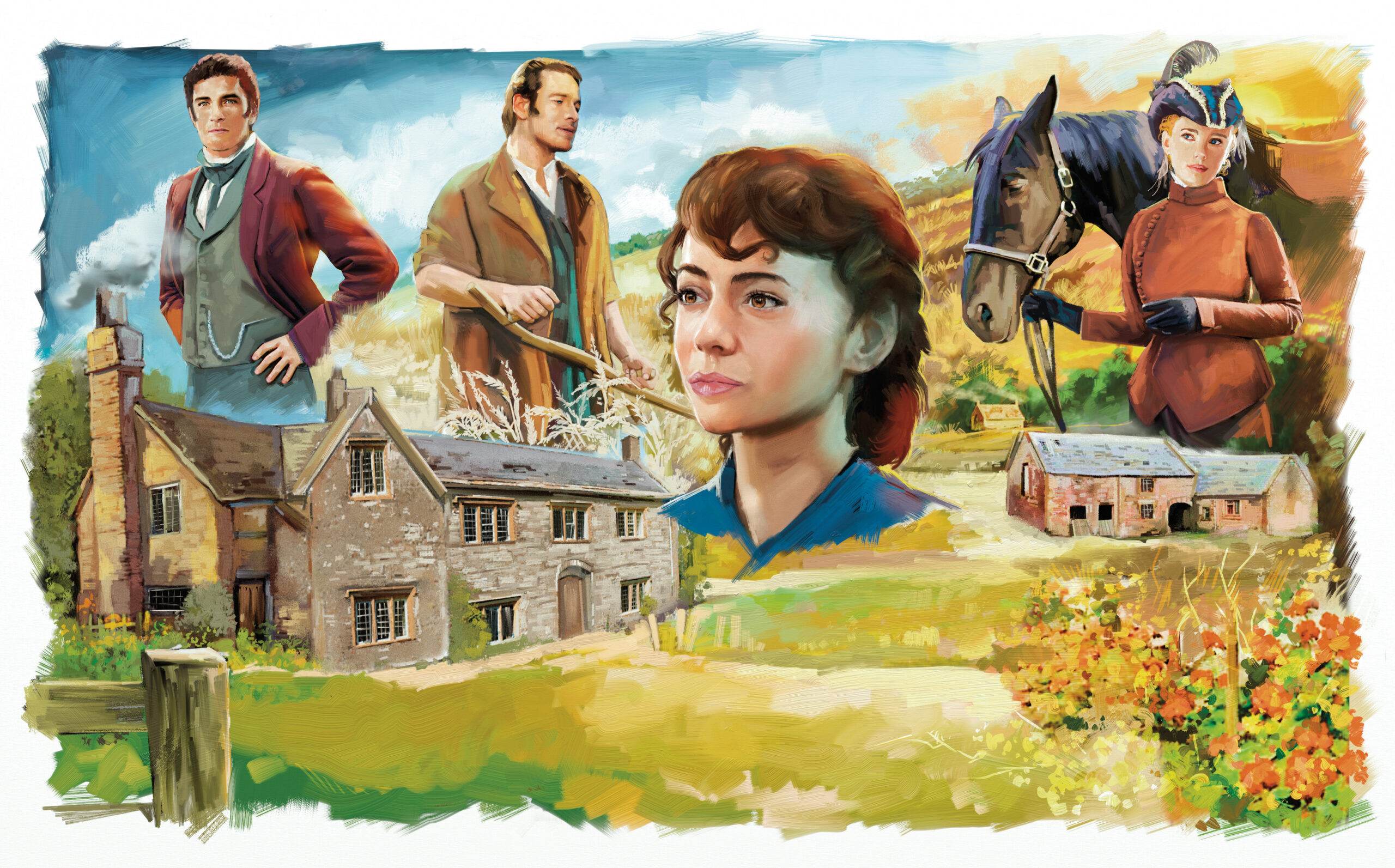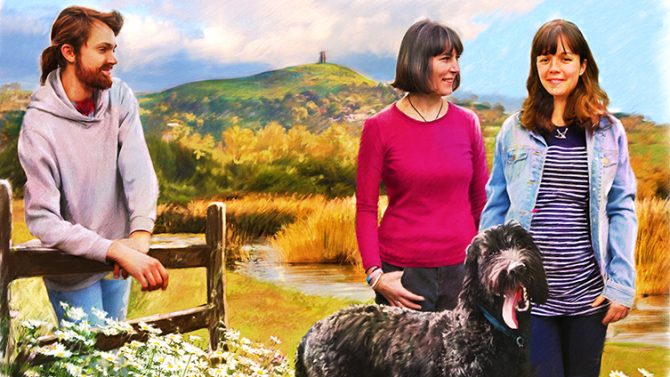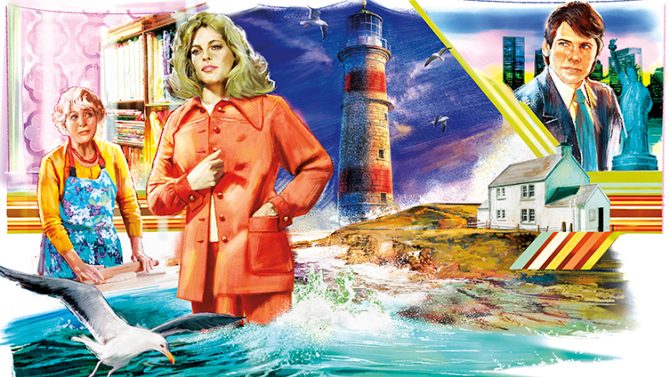About The Hollow Ground – Episode 15

About The Hollow Ground by Pamela Kavanagh
« Previous Post- 1. About The Hollow Ground – Episode 01
- 1. About The Hollow Ground – Episode 15
Piers indicated the place, a cobblestoned area containing several round hay ricks, flanked on two sides by handsome sandstone outbuildings and a barn on the third.
Situated between the timber-framed farmhouse and the recently restored, fast-flowing brook, the stackyard had been built at considerable expense by the late Henry Vessey.
“It could be a problem. The brook can only take so much water. Should it burst its banks during heavy rain there’s a chance of flooding, and any hay and straw stacked here would get a dousing.
“Stored fodder can ignite as it dries out. This stackyard is too close to the house for comfort.”
Nan had a spurt of annoyance. No-one else had ever questioned her papa’s integrity before and Merriman had done so from the start, albeit with tact and diplomacy. This, she felt, was taking one liberty too many.
“The drainage problem has been dealt with. The stackyard has never before succumbed to floods, so why would it now?”
“Because,” Piers replied patiently, “any surplus water that was once taken up by the fields is now directed on to its correct course, and the brook can only take so much before it overflows.”
“So what do you propose? That we demolish the entire lot and rebuild on another site?” Nan asked, her face set and accusing.
It was obviously an improbable solution and Piers was silent.
Nan struggled to contain her irritation. Thanks to this man, the farm was rising from the doldrums it had been in.
Once more there were sheep cropping the slopes, cattle in the fields and a swollen-bellied Gloucester Old Spot sow occupying one of the abandoned sties. It was a start, and all acquired from the proceeds raised by selling off the defunct equipment littered the buildings and yards.
Before Nan’s eyes the land was regaining its past vigour, due to rigorous drainage and cultivation. There was even talk of re-establishing some of the redundant staff to cope with the increased workload for the men.
The expanding farm was nearing the crucial stage of requiring a bailiff to manage it, and Piers had shown himself worthy of the position.
Offering it to him, rather than entering the process of advertising and interviews, with no guarantee of success, was a feasible proposition.
The trouble was that whenever Nan was about to broach the subject, something would happen to stop her, as it had a moment ago.
A light pattering of unshod hooves heralded a caller, and around the corner of the house appeared the unkempt figure of the rat-catcher on his pony, a trio of feisty terriers frisking alongside.
Piers cleared his throat.
“Here’s Will Rowson. Not before time, either. The barns are alive with vermin. If you’ll excuse me, ma’am, I’ll go and have a word.”
“Very well,” Nan said tersely, and Piers, affording her a polite nod, beat a retreat.
* * * *
Towards the end of the week, Piers went to see a neighbour at Bank House Farm about the loan of a Red Poll bull. He made the transaction and set back, taking a route that brought him out by the church.
His attention was caught by a slim figure bending over one of the graves. Black-clad, a gauzy veil covering her face, she was replacing the fading flowers with fresh.
Piers stopped short, his mind racing. Could this be the unknown mourner Nan Vessey had spoken of?
Needing to see if this was the resting place in question, and if so, if he could learn any more about the incumbent, he decided to investigate further.
For a big man, Piers was remarkably light on his feet. He entered the churchyard through the main gates and, avoiding the gravel walk, cut across the grass to where the woman stood, a damp, balled-up kerchief in her gloved hand.
A glance at the headstone verified that this was the place he sought.
“Good day to you,” Piers bid the woman.
She started, unaware of his approach.
“You startled me, sir.”
“My apologies. The name’s Merriman. I work for Miss Vessey of Cross Lanes Farm. I never knew the late Henry Vessey. You apparently do not have that disadvantage.”
“I . . . no. Do excuse me, sir. I have to go.”
“Please, ma’am, I’ll not detain you long. Stay a while.”
But the woman, darting him a panicked glance from beneath the veil, gathered her skirts and sped away.














